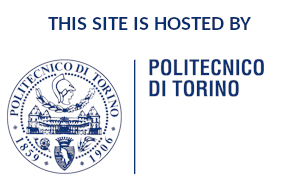The INSTM was established in 1992 as a Consortium of Italian Universities with the goal to promote research activities in the field of Chemistry of Materials. Later it was joined by other similar Institutions and expanded its interests to the Science and Technology of Materials. The acronym INSTM stands for Consortium of Italian Universities for the Science and Technology of Materials. Nowadays it groups 49 Italian Universities, in practice all the Universities where research on Materials is carried out. INSTM is an original bottom-up aggregation of researchers, which has a minimum of bureaucratic structure and efficiently coordinates the activities, promotes the joint participation of INSTM groups to Italian and European projects, is active in technology transfer, also establishing spin-off enterprises, takes care of the training aspects in Materials Science and Technology. The participation of individual Universities to INSTM is on a voluntary basis. Once a given University decides to join INSTM, all the researchers who may be interested to participate to the activities of the Consortium can do that after their application is accepted by the Executive Board. About 2000 professors, researchers, post-docs and PhD students are associated to INSTM and the number thereof is continuously increasing. A Local Research Unit is formed in each associated University and all the groups join it. The INSTM Local Research Units (UdR) involved in the present project is the INSTM UdR of Turin located at the associated University of Politecnico di Torino and the INSTM UdR of Milan located at the associated University of Politecnico di Milano. So in NEWTEAM project, three main UdR are involved in this project: Further to the research work, the Politecnico di Torino UdR will take the responsibility of project coordination (PC: Prof. Daniele Ugues).
The Montanuniversität Leoben (MUL; www.unileoben.ac.at) is well-known as being one of Austria’s best universities undertaking high-quality research that is focused along the entire “value-added cycle”, i.e. starting from the exploration and extraction of raw materials, including mining and tunnelling, via fields such as mineral processing, metallurgy, high-performance materials, mechanical and process engineering, to environmental technology and, to close the circle, the recycling of raw materials. The aforementioned research areas are accompanied by those covering energy technology and resources management, safety engineering and risk management, mathematics, natural sciences as well as economic and business management. The MUL is strongly committed to integrating the concept of sustainability into the value-added cycle and enhancing the development of high-tech manufacturing and production processes. The university’s various research areas embrace R&D for SMEs and larger scale industry as well as for public institutions. Being the only Austrian university with a major research focus on mining and raw materials, the Montanuniversität Leoben was ranked as the 7th best university worldwide on the materials science sector. The university strongly participates in the initiation and realisation of national competence centres, and research studios / laboratories, and moreover, is actively involved in numerous national, European and international research projects. At present, the university consists of 13 departments and 4 institutes comprising more than 40 chairs and employing in excess of 1250 people. Approximately 4200 students are currently enrolled with ~ 17% being international students coming from 80 different nations.




